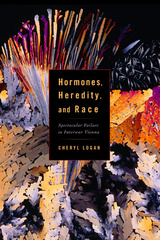With the completion of the sequencing of the human genome in 2001, the debate over the existence of a biological basis for race has been revived. In Revisiting Race in a Genomic Age, interdisciplinary scholars join forces to examine the new social, political, and ethical concerns that are attached to how we think about emerging technologies and their impact on current conceptions of race and identity.
Essays explore a range of topics that include drug development and the production of race-based therapeutics, the ways in which genetics could contribute to future health disparities, the social implications of ancestry mapping, and the impact of emerging race and genetics research on public policy and the media.
As genetic research expands its reach, this volume takes an important step toward creating a useful interdisciplinary dialogue about its implications.
This very important and timely volume should be of interest to any readers interested in human variation and how developments in biomedical sciences—especially the mapping of the human genome—impact the long-standing debate surrounding the concept of race. The book's multidisciplinary nature makes it unique and particularly thought-provoking. Highly recommended.
There are vigorous proponents for the continued use of race as a proxy for ancestry, some represented in this collection. Yet the full value of Revisiting Race in a Genomic Age—and the editors' trenchant analytic summaries—is that the volume substantially raises the level and the terms of the debate. That deserves applause from all sides.
The interdisciplinary discussion on genetics and race presented in Revisiting Race in the Genomic Age brings us closer to an understanding of genetics and racism.
In this complex context, there is a clear need for interdisciplinary studies that
could enlighten us regarding human genetic variation, bringing together experts in
the biological sciences, the social sciences, and the humanities. Scientists working
in human genetics today need a solid cultural background in science, history, and
the philosophy of science. The volume represents a first and useful answer to these
needs.
Developments in molecular biology have fundamentally changed our understanding of the human genome and the role of genes in human health and behavior. This important, timely, and richly informative volume examines the diverse implications of modern human genetics for one of the most challenging and vexing constructs ever devised for describing humans: 'race'.
BARBARA KOENIG is a professor at the Mayo Clinic College of Medicine and is a faculty associate at the Center for Bioethics at the University of Minnesota at Minneapolis.
SANDRA SOO-JIN LEE is a senior research scholar at the Center for Biomedical Ethics and lecturer in the Department of Anthropology at Stanford University.
SARAH S. RICHARDSON is a doctoral student in the Program in Modern Thought and Literature at Stanford University.
Acknowledgments
Introduction: Race and Genetics in a Genomic Age
Part One. Concepts of Race
Part Two. Race-Targeted Research and Therapeutics
Part Three. Genetics Ancestry, Identity, and Group Membership
Part Four. Race and Genetics in Public Discourse
Contributors
Index






